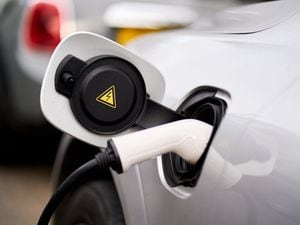North-South electric charging divide
A disparity in access to budgets and planning between local authorities across England to support the rollout of a public sector electric vehicle charging infrastructure, is exacerbating the north-south divide and threatening Britain’s transition to a net zero future, according to a study.

Research by EC charge point operator Believ found that whilst 33 per cent of all local authorities surveyed claimed to have no formal EV infrastructure plan in place, the figure rose to 40 per cent for the north.
Also 70 per cent of respondents in the north describing access to sufficient funding ‘a significant barrier’, compared with 45 per cent in the south.
The report found charge points are unevenly distributed across the country and disproportionately affecting drivers in the north. London (34 per cent of the total) and the South East (12 per cent) have the highest proportion of charge points per vehicle, whilst the North East (three per cent) and the North West (seven per cent) are trailing behind.
For the West Midlands it is eight per cent.
Many local authorities want Government funding to target those areas it defines as deprived and rural, which includes many of the northern ex-mining communities.
The challenge for many local authorities is that they feel they cannot justify using local funds to install EV infrastructure while local residents are struggling to cope with the cost-of-living crisis. Some 43 per cent of respondents said installing charge points is too expensive, and almost all of them think residents living in deprived areas cannot afford to buy EVs, so there is no need to build public charging facilities in their area.
Guy Bartlett, chief executive of Believ, says the survey shows there is an urgent need for a more balanced approach to developing Britain’s national EV infrastructure.
“We must address disparities in the pace and scale of the rollout across the UK. It is crucial to ensure an equitable transition to sustainable transportation and mitigate the risk of a growing north-south divide.
“Local authorities need support for the enormous task of fulfilling the Government’s net zero ambition. They should also be encouraged to use the private sector to help them fund and build EV infrastructure so that no community is left behind," he stressed.





